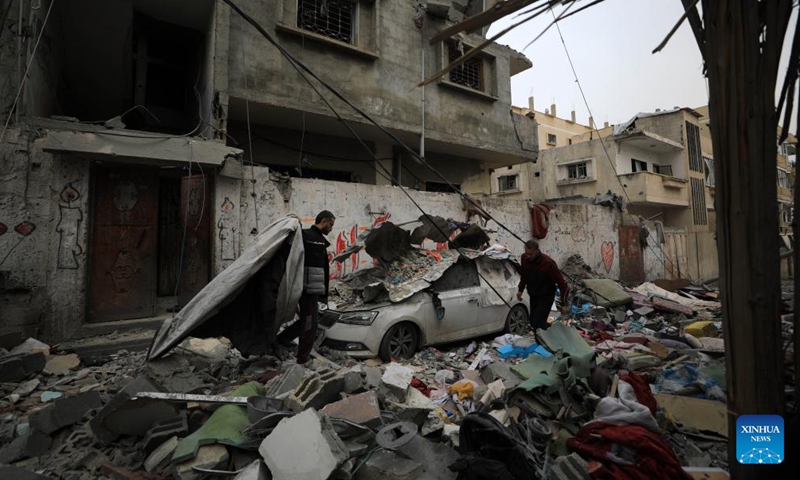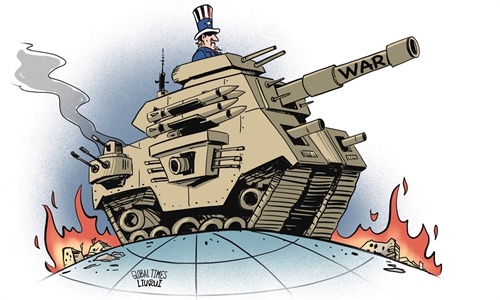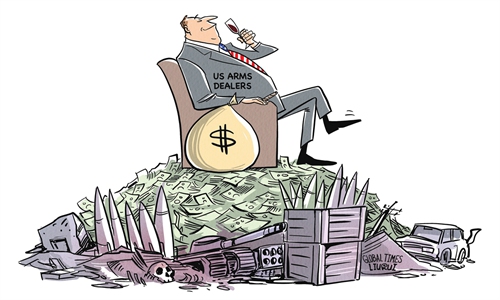
People are seen among the rubble after an Israeli airstrike in the southern Gaza Strip city of Rafah, on February 27, 2024. The Palestinian death toll in the Gaza Strip has risen to 29,878 since October 7, 2023, the Hamas-run Health Ministry said in a press statement on Tuesday. Photo: Xinhua
US Airman Aaron Bushnell died after an extreme form of protest in which he lit himself on fire in front of the Israeli embassy in Washington D.C.As Aaron Bushnell walked to the Israeli embassy, he declared on film that no matter how extreme his next course of action might seem, it was incomparable to what the Palestinians in Gaza were suffering. He was referring to the US government's role in arming and aiding Israel both militarily and politically in the Israeli government's military operations in Gaza.
This was the world Aaron Bushnell woke up into while serving in the US military. He awoke to immense injustice, the injustice he was unable to ignore.
In the wake of his extreme protest, in which he doused himself with flammable fluid, lit himself on fire, and to his last breath shouted "free Palestine," the Western media and commentators across the Western world have attempted to dismiss Aaron Bushnell's protest as "mental illness."
Such people fall into two categories.
The first category consists of those who can see and know what the US and its allies are doing around the globe is wrong, but choose to remain silent. They justify their silence by labeling individuals who are brave to speak up as "mentally ill" to avoid confronting their own moral cowardice.
The second category includes individuals who actively support US foreign policy, regardless of its deadly and destructive nature.
For both categories, Aaron Bushnell's actions challenged both categories to confront the extreme violence perpetuated by the US government and Western media, disrupting the normalized portrayal of US foreign policy. The world was forced to see how ugly and disturbing violence really is.
Aaron Bushnell's death has undoubtedly made an impact, whether or not people want to admit it and whether it is convenient for US foreign policy or not.
Unfortunately, for many US service members, and many others across Western society, when they awaken to what is really happening around them, and around the globe in their name, they feel angry and a sense of immense injustice being done, but also tremendous isolation, helplessness, and frustration. They may even feel guilt and a need to reconcile their role in perpetuating US foreign policy until awakening.
It is important to carry on Aaron Bushnell's work of raising awareness of the injustice he was speaking out against. It is also important for us all to begin discussing ways we can address the many problems US foreign policy represents, rather than simply listing them off. We must find ways for those who are discontent with US policy to channel their energy, courage, and commitment in life to make this world a better place, rather than leaving them to resort to acts of desperation against what seems like immovable injustice.
Aaron Bushnell's form of protest was extreme, but it was in response to a foreign policy even more extreme and one that is itself fundamentally ill. While it is too late to save him, it may not be too late to create avenues and outlets for people like him to fight for justice in life, rather than forfeit their lives to shake the US and Americans from their foreign policy of death.
The author is a geopolitical analyst and a veteran of US Marine Corps. opinion@globaltimes.com.cn


